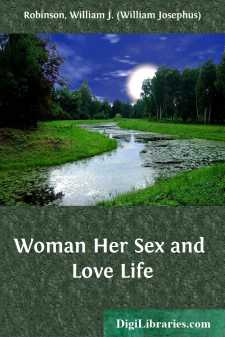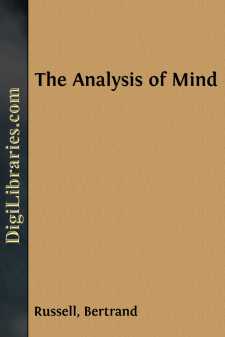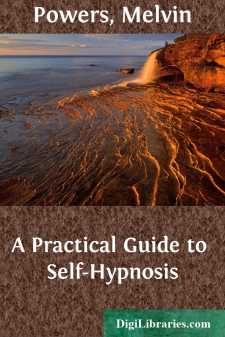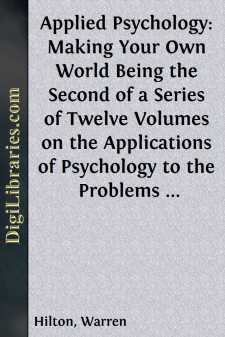Psychology
Psychology Books
Sort by:
CHAPTER IINTRODUCTION Science. Before attempting to define psychology, it will be helpful to make some inquiry into the nature of science in general. Science is knowledge; it is what we know. But mere knowledge is not science. For a bit of knowledge to become a part of science, its relation to other bits of knowledge must be found. In botany, for example, bits of knowledge about plants do not make a...
more...
THE CREATION OF WOMAN This old Oriental legend is so exquisitely charming, so superior to the Biblical narrative of the creation of woman, that it deserves to be reproduced in Woman: Her Sex and Love Life. There are several variants of this legend, but I reproduce it as it appeared in the first issue of The Critic and Guide, January, 1903. At the beginning of time, Twashtri—the Vulcan of Hindu...
more...
THE MIND AND ITS EDUCATION THE MIND, OR CONSCIOUSNESS We are to study the mind and its education; but how? It is easy to understand how we may investigate the great world of material things about us; for we can see it, touch it, weigh it, or measure it. But how are we to discover the nature of the mind, or come to know the processes by which consciousness works? For mind is intangible; we cannot see...
more...
by:
Bertrand Russell
MUIRHEAD LIBRARY OF PHILOSOPHY An admirable statement of the aims of the Library of Philosophy was provided by the first editor, the late Professor J. H. Muirhead, in his description of the original programme printed in Erdmann's History of Philosophy under the date 1890. This was slightly modified in subsequent volumes to take the form of the following statement: "The Muirhead Library of...
more...
ORGANIC DIFFERENCES IN THE SEXES A grand difference between plant and animal life lies in the fact that the plant is concerned chiefly with storing energy, and the animal with consuming it. The plant by a very slow process converts lifeless into living matter, expending little energy and living at a profit. The animal is unable to change lifeless into living matter, but has developed organs of...
more...
by:
Irwin Edman
Page iii FOREWORD This book was written, originally and primarily, for use in a course entitled "Introduction to Contemporary Civilization," required of all Freshmen in Columbia College. It is an attempt to give a bird's-eye view of the processes of human nature, from man's simple inborn impulses and needs to the most complete fulfillment of these in the deliberate activities of...
more...
by:
Melvin Powers
FOREWORD All of us like to think that our actions and reactions are a result of logical thought processes, but the fact is that suggestion influences our thinking a great deal more than logic. Consciously or unconsciously, our feelings about almost everything are largely molded by ready-made opinions and attitudes fostered by our mass methods of communication. We cannot buy a bar of soap or a filtered...
more...
SEX UNIVERSAL AND ETERNAL The fundamental basis of the universe is Sex. Sex is the fulcrum upon which our life-activities turn. It is the life of Man and of planets, and ignorance of the laws of Sex is the cause of death of both. It is the conjunction of the forces of attraction and repulsion; the positive and negative; the centripetal and centrifugal forces which hold stars and planets in their...
more...
by:
Warren Hilton
Chapter ITHE TWO FUNDAMENTAL PROCESSES OF MINDMind as a Means to AchievementIn the preceding book, "Psychology and Achievement," we established the truth of two propositions: I. All human achievement comes about through bodily activity. II. All bodily activity is caused, controlled and directed by the mind. To these two fundamental propositions we now append a third, which needs no proof, but...
more...
by:
Bernard Glueck
When, in 1810, Franz Joseph Gall said: “The measure of culpability and the measure of punishment can not be determined by a study of the illegal act, but only by a study of the individual committing it,” he expressed an idea which has, in late years, come to be regarded as a trite truism. This called forth as an unavoidable consequence a more lively interest on the part of various social agencies...
more...











